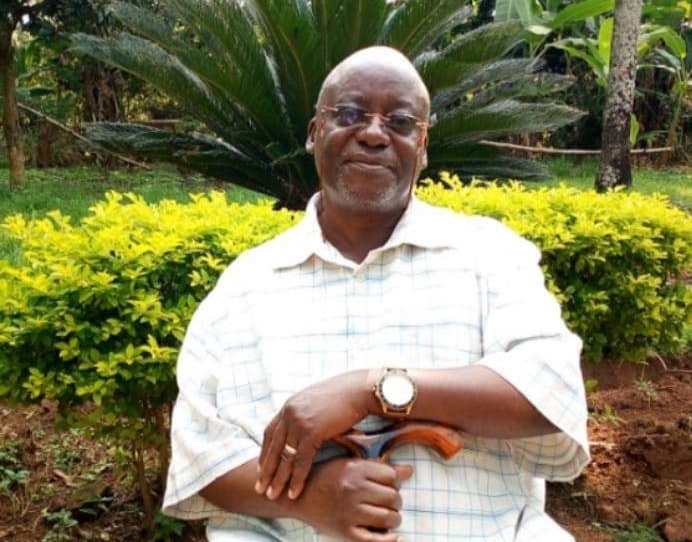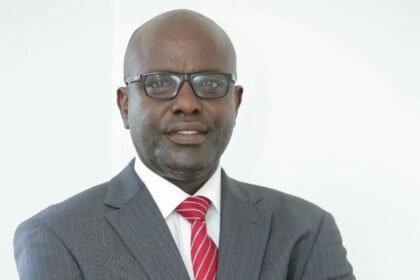International labor migration has surged in recent years with an increasing number of workers moving across international borders for work. The stock of international migrants increased from 154 million in 1990 to 244 million in 2015 (UNDESA, 2015). In 2017, migrant workers accounted for approximately 59 per cent of the world’s international migrant population (ILO, 2018). Crossing national borders to work is one of the key motivation behind international migration mainly driven by economic inequalities, seeking employment or both.
On Tuesdays 15 Nov 2022, Amb. Abbey Walusimbi led a team of president’s office, CAA, Security agencies to Entebbe international airport to take a tour of the airport with the intention of familiarizing the team with the processes that migrant workers go through when going and when returning home
Any effort geared towards streamlining labor externalization is a good one. As it is, we still have roadblocks as far as labor externalization processes, procedures and protocols are concerned. The challenges are end to end from passport acquisition, to training of labor migrants, vetting/screening, registration, transportation, remuneration, getting a job etc.
Recruitment companies who are big stakeholders in this have their own challenges as well. From business formulation/starting to operations, relating with regulators, acquiring personnel, preparing them for prospective jobs, sourcing for reputable contracts etc.
The second last huddle is the movement of labor migrants from their respective companies to airport for onward movements to final destinations. The challenges are always found at the airport through vigorous clearances. Ideally, airport for a normal passenger is challenging, it has many security protocols to fulfill. Entebbe international airport has like four security points where travelers must go through. These points may require passengers to disembark form their means of transport, go through walk through metal detectors, luggage through x-ray machines, removal of hand wristwatches, shoes, belts etc. This whole equation is tiresome but one must comply with it. For labor migrant, he/she must report to Ministry of labor desk on top of the procedures I have mentioned above.
The last box to tick is getting a job that you either paid for or you were promised. One can clearly see that this process is not for the soft hearted. In all this we must acknowledge and submit that unemployed, underemployed is rampant in our country. Any opportunity that can take away numbers and reduce on unemployment should not only be welcomed but also fully and decisively supported.
UNBOS statistics on employment.
On Tuesday 15th Nov 2022, UNBOS on a press conference said that the average Ugandan employed earns 200.000UGX. This is below the belt. In the current economy, 200,000 cannot facilitate the cost of leaving for an average family whether in urban setting or rural villages. Common home necessities prices have since touched the sky. Soap, sugar, cereals, posho, matooke, cassava prices have all run mad.
House helpers paid over 1m a month.
Saudi Arabia where most Ugandans women go for employment pay 1m ugx as the minimum remuneration. On top of this fee, the house cleaner is housed; transported etc. the 1m shs is take home. Any person with good saving habits will come back to Uganda with close to 20m Shs after 2 years of tour of duty. This is not a small amount of money. The would be the challenge is inflation. If government can deal with inflation, this earning should be a deal cutter for ones improved future life.
Abu Dhabi, Qatar, Dubai security agents earns 2.5m and above.
This category of people earn above 2m and other earn up to 4 million depending on the role, the company that one works for. At the end of 24months-2year contract, this person has close to 40million in the pocket. Ideally, 40million if well utilized should move someone from the poor bracket to middle-income range.
Lessons from other countries.
Based on figures from the year 2015, the countries holding the largest amount of such migrants are Saudi Arabia with 10.1 million, the United Arab Emirates (UAE) with 8 million, Kuwait with 2.8 million, Israel with 1.9 million, Oman with 1.8 million, Iran with 1.7 million, and Qatar with 1.6 million.
Nepal as an example.
More than 1,750 Nepalese leave the country daily for foreign employment. According to the data available a total of 6,39,167 aspirant migrant workers left for various countries in the fiscal year 2016/17, up from 4,18,713 in the previous FY 2015/16 (MOLE, 2018). This figure does not include the population being employed in India, which is estimated to be more than 3 million. Massive increased in foreign labour migration, remittances flowing into Nepal as a share of GDP doubled from 14.9 per cent in 2005/06 to 32.1 per cent in 2015/16. Close to 50 per cent of Nepalese rely on financial help from relatives abroad, the highest rates in the region. The top-five destinations for Nepali migrant workers are Malaysia (40.9 %), Saudi Arabia (22.9 %), Qatar (20.3 %), United Arab Emirates (11.2 %) and Kuwait (2.1 %), (ILO, 2017). Government data shows that a majority of the migrant Nepali workers are engaged in 4D works (Difficult, Dirty, Dangerous and demeaning) in countries, from Qatar to Malaysia and from South Korea to Israel (MoLE, 2014). Nepalese workers have sought foreign employment in both the agricultural and non-agricultural sectors and struggling to generate new employment opportunities. At the macro level, the remittances represent a valuable source of foreign currency. At the household level, remittances reduce poverty by providing much-needed money for basic necessities, such as food, clothes, health care and children’s education. Between 2005 and 2011, the poverty headcount in Nepal decreased by 4 per cent (from 29 to 25 %) (CBS, 2011).
Nepal received remittance amounting to Rs. 875 billion in FY2019/20, which translates into a remittance to GDP ratio of 23.23 percent (NRB 2020). Consequently, Nepal is seemingly a remittance-based country with remittance inflow amounting to more than a quarter of the country’s GDP. This is not small money. Imagine Nepal without migrant workers.
Recent data from the May Migration and Development Brief shows that remittance flows to Uganda declined by 26 per cent, from US$1.4 billion in 2019 to US$1.1 billion in 2020. Yet despite the decline, Uganda was ranked among the top ten recipient countries in sub-Saharan Africa (SSA).
Migrant workers has not just started today or yesterday especially for Arab countries. Some countries started these programs many years ago. Nepal, Philippines, Bangladesh, Pakistan, China, India, negotiated with Arab countries on better labor relations including renumeration,scope of work, and general contract terms including arbitration. Some countries like Philippines earn a lot of remittance from migrant workers more than anything in their countries. UAE non-core services/technical services are managed by non UAE nationals. The Philippines are allover UAE. They earn billions of dollars for their countries. Why not Ugandans?
Way forward for migrant workers in Uganda.
Ugandan government should accept that migrant workers journey is yet to stop and certainly will not stop. What’s needed is government is to quickly streamline the processes, protocols, policies to support labor migration. The benefits of labor migrations are in black and white. If there is a need of law, let Ministry of Labour come up with one. A streamlined labor migration with even kill off human trafficking, illegal labor movements among others.
One stop center for labour migration or externalization of labour.
Let’s borrow the concept of one stop center the government created to facilitate trade. When a business person arrives at malaba boarder, under one roof, you will find there URA,UNBS, banks, URSB and any other government agencies to facilitate trade. In the same spirit, there is a need for a venue where a migrant worker will find MOGLSD, passport officer, vetting offices, MOFA, ,representative of labour companies, security agencies name it. As it is now, these services are scattered. One has to move from here to there. Its tedious, frustrating and time consuming. As a country our customer services died long ago, we are never mindful of time as a cost, offices are easily closed on a working day etc. All these are bottlenecks towards growth and support of labor externalization.
One Ugandan working in Qatar supports more than 5 people back home. If you have 2 million labor workers in Arab world, it means 20 million Ugandans will benefit from this deployment.
To you Ambassador Walusimbi, keep your hands on tab for this sector. It is rewarding at an individual, family and country level. President Museveni has big eyes, the fact that he has brought this sector to his office, means a lot. Any meaningful Ugandan leader at any level should support this sector. It has a potential to move our country from one level to another. Let us try it. We need to see a seamless process from when one applies for a job to when the same person seats in Uganda airlines off to middle east. Of course other protocols like human rights, communication, evacuation etc can be debated. We need to learn from how other countries have managed this sector. Certainly, issues of death, mistreatment of workers will come up. Modalities of how to handle these incidents should be in place. In Uganda, in the first two weeks of October, we lost close to 100 people through boda boda accidents. Same bodas are still on road crushing people either to death, huge injuries etc. However, one Ugandan death in Saudi Arabia, then hell visits the world. We can only be objective, realistic, focused, bigger picture oriented than being unserious, alarmist and un-focused. We need a developed Uganda by 2040. These are some of the risks we should prepare to take. A good Uganda for me now and a better Uganda for our children tomorrow. Both you and I have a role to play.
Samson Tinka
Safety and security consultant-tindsam@yahoo.com
Do you have a story in your community or an opinion to share with us: Email us at Submit an Article









